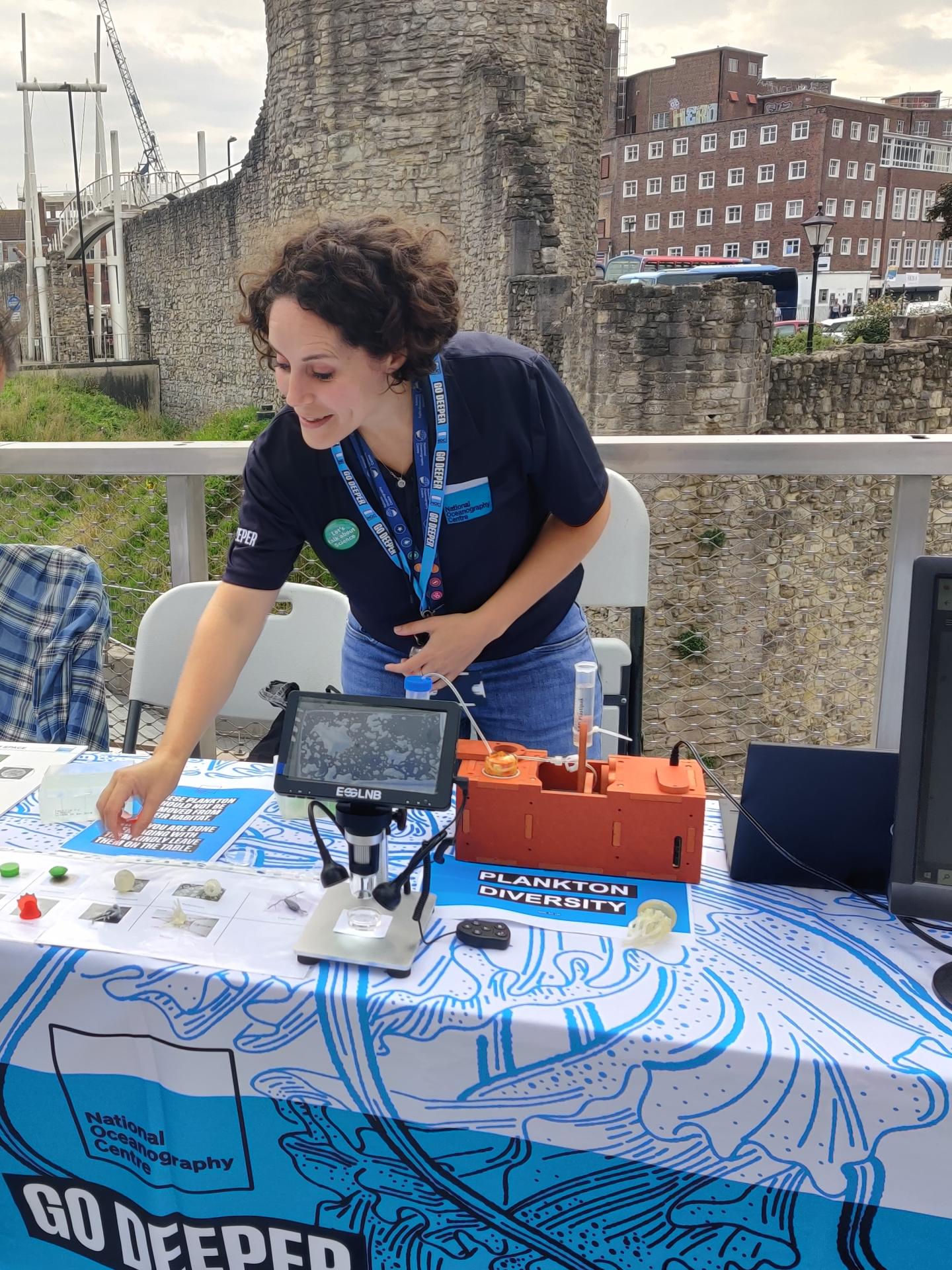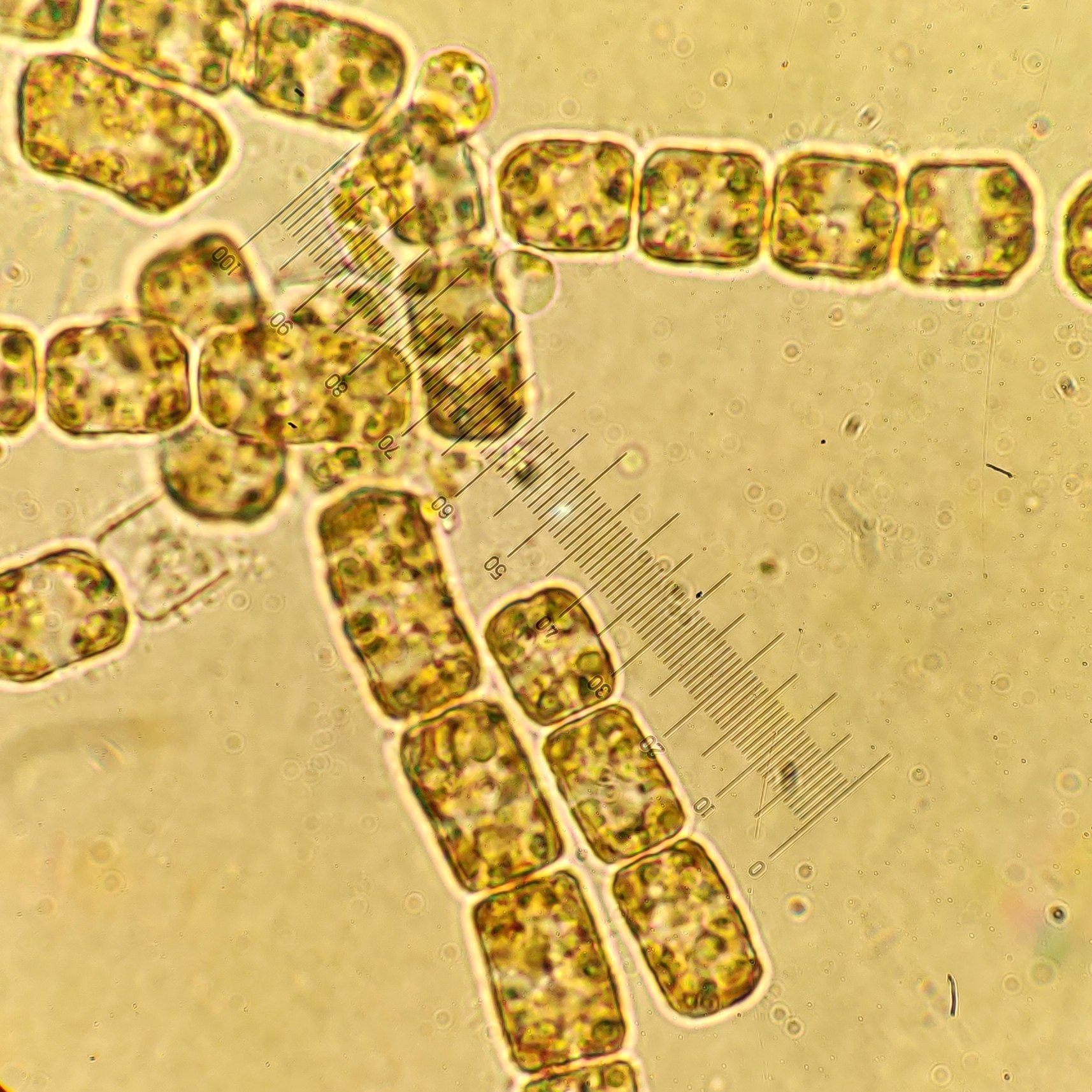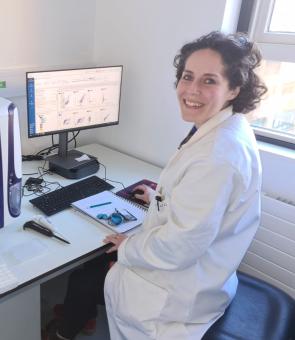Phytoplankton are microscopic organisms including bacteria, algae and animals that drift with the ocean currents. Although tiny, they play a very important role in the regulation of our climate.
For this month’s scientist spotlight, we delve into the world of microscopic ocean life with Dr Elena García-Martín who tells us about her fascinating role in researching phytoplankton dynamics. 
What is your role in research at the NOC?
I am a principal investigator in phytoplankton dynamics. I study the role of tiny marine microorganisms (plankton) on the marine carbon cycling, the coupling between oxygen production (primary production) and consumption (plankton respiration) processes and the influence of the community structure and environmental variables, such as temperature, nutrient quotas and dissolved organic matter, on the plankton production and respiration. I lead laboratory experiments with cultured organisms in the laboratory as well as participating in research expeditions.
What drew you to working in this area?
I’ve been passionate about the ocean since I was little, but it was during my undergraduate that I discovered the fascinating world of microscopic life and wanted to know more about their diversity, function, and their adaptability to the different environments.
What science are you currently working on?
Currently I’m working on two different projects. In BIOPOLE we are investigating how Arctic and Antarctic ecosystems regulate the balance of carbon and nutrients in the polar and global oceans, driving primary productivity, fisheries production, and the global carbon cycle. As part of this project, I lead some experimental laboratory work which involves growing different polar plankton species at 2 different temperatures and nutrient requirements simulating current and future conditions in polar areas.
The second project, PARTITRICS, aims to improve understanding of the processes that affect the rate and depth of respiration in sinking particles. As part of this project, I will participate in a research cruise campaign to the Iceland Basis where we will deploy a particle collector, called a Marine Snow Catcher, to collect sinking particles (i.e. dead cells or plankton poo), and quantify how fast they are degraded by the bacteria and other microorganisms that live attached to them, and whether this degradation is influenced by the type of sinking material and depth.
What is your favourite thing about the work you do? 
Umm, difficult to only choose one thing. I will say the best thing is the interdisciplinarity of my science and the collaboration with diverse people with different backgrounds, skills, and research interests. Working collaboratively helps me to learn a lot from others.
What impact does your science have on society?
Plankton are at the base of the marine food chain, which means that they are the food for larger organisms such as fish. Some plankton, the phytoplankton, also capture carbon dioxide from the atmosphere, during photosynthesis, storing it in their cells and transferring to the deep ocean when they die. So, studying how plankton will be affected by future conditions and how much carbon dioxide can be sequestered in the ocean interior is fundamental not only for ocean’s health but for our health as well. All of us depend on the ocean for food, services such as travel and recreation, climate regulation and our wellbeing.

